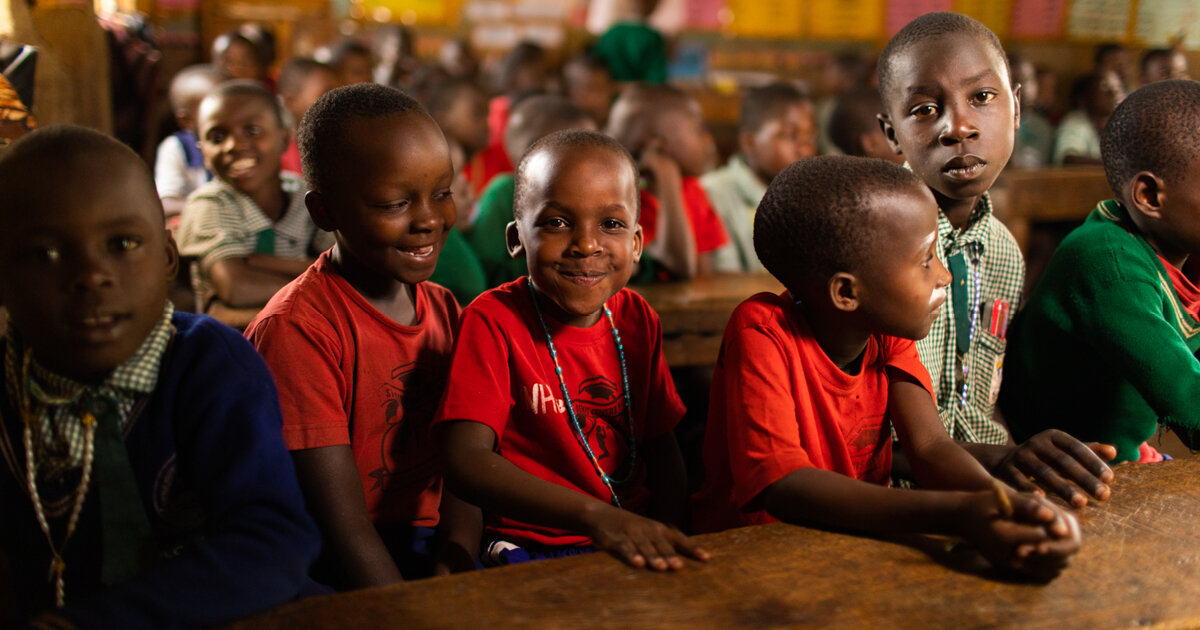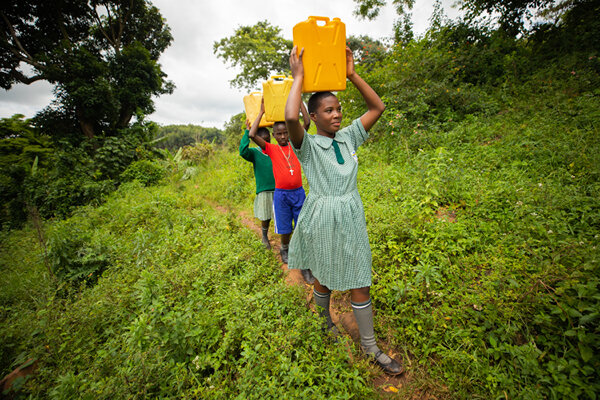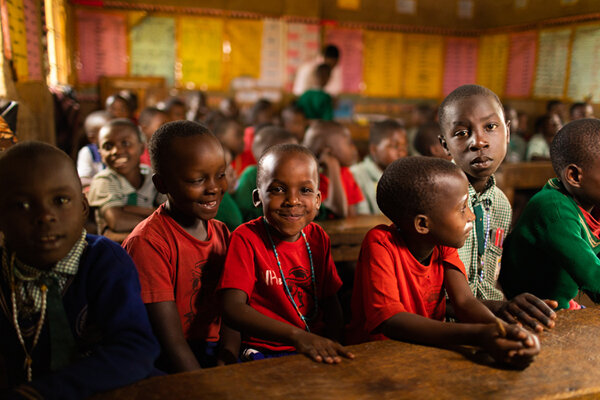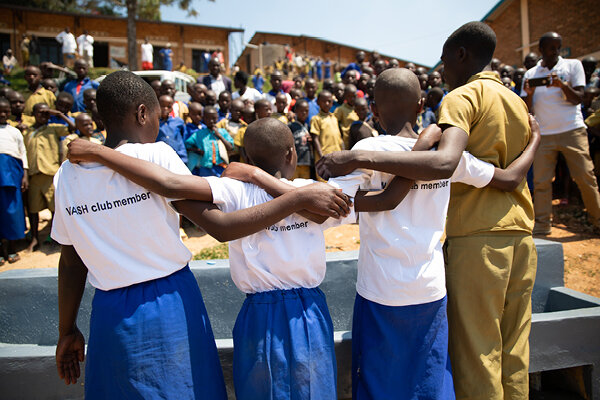What Causes Poverty in Africa?

What does poverty in Africa look like?
Water scarcity
Take a moment to stop and think about what your day would look like if you didn’t have running water in your home. To access water at all, you’d first have to walk 2 miles one way and wait in line for at least 15 minutes in the hot sun, before you could fill your 5-gallon jerry can and walk the 2 miles back home.
66% of Africa’s continent is arid or semi-arid, and over 300 million people (approximately one-third of the total population) live in sub-Saharan Africa, a water-scarce environment. Living in a water-scarce climate means that each person has access to less than 264 gallons of water per year. That’s just under three-quarters of a gallon per day.
That is less than a gallon of water for all your personal water needs for the whole day. Handwashing, drinking, cooking, cleaning, bathing, you name it, three-quarters of a gallon is your limit. In contrast, the average American family uses approximately 300 gallons of water PER DAY.
And this three-quarters of a gallon that is yours for the day doesn’t just show up. It doesn’t come out of a tap. In sub-Saharan Africa, more than a quarter of the population has to walk at least 30 minutes to collect their daily water.
Health crises
Not only does water in short supply require time and effort to retrieve, but it’s also often dirty. One hundred fifteen people in Africa die every hour from preventable –and treatable– diseases linked to poor sanitation and hygiene practices, and contaminated water. Children in sub-Saharan Africa are fifteen times more likely to die before the age of five than children in higher-income countries.
Sub-Saharan Africa is home to 12% of the global population, yet carries 70% of the worldwide burden of HIV. Without access to prevention education and treatment, these numbers can’t change.
Economy
The economic outlook is quite grim, as well. The number of people living in extreme poverty in sub-Saharan Africa (those subsisting on less than $1.90 per day) continues to rise. Currently, it accounts for more than half of the extremely poor globally.
Poverty is a barrier to progress in many ways. Without resources, families can’t send their children to school, or if they do, they may end up pulling the girls out to help with chores (such as gathering water) or contribute to household income.
So what do they need? What is the solution? Do we need to ship crates of medical supplies and teams of doctors? Do we need to send economics professors and business people to educate them about work?
Solutions
First of all, we must be careful not to confuse poverty and lack of education with a lack of intellect or ability. While sub-Saharan Africa may be poor in financial and health resources, it is rich in other resources, including people.
Leaders are born in every country around the world. People who see the needs of their community and figure out how to meet them. Men and women who see potential in themselves and others, and work to realize that potential.
They don’t need us to solve their problems. They need us to support their solutions. Who knows better than they do what will make a difference in their village? Change and progress require local buy-in and a sense of ownership throughout the community to be sustainable.
Supporting African solutions is one of our core beliefs at Blood:Water. It is the reason we don’t take teams of people into Africa to construct water points and temporary medical clinics. Do we visit and help our partners? Absolutely. We listen and learn from them as much as we share information and resources with them.
In America, we tend to have a bit of a “savior complex,” meaning that we want to be the ones to fix others’ problems and be the hero. But America is not the only country that births heroes, Africa does too.
They don’t need us to be their savior or hero; they need our support. Our compassion. Our generosity. Our love. This is how we make a difference against poverty in Africa.
More Stories:
Categories


